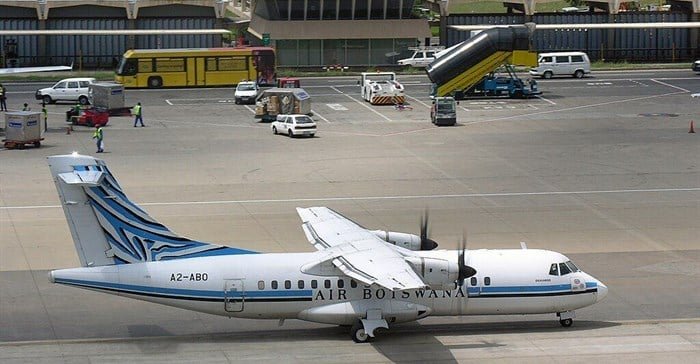

Air Botswana boosts CPT network with new Kasane route
Starting 1 November 2024, Air Botswana will launch a new route from Kasane to Cape Town, adding three weekly flights and increasing Cape Town’s African destination count to 16. The airline will also increase its Gaborone-Cape Town flights from three to five per week and introduce a new service from Maun with three weekly flights.
Botswana is Cape Town’s fifth-largest passenger market in Southern Africa, with a 21% growth in passenger numbers in 2023 compared to the previous year. The Kasane route marks the 11th African destination added to Cape Town’s network since the Cape Town Air Access project began in 2015.
Boosting connectivity
The new services will boost Cape Town’s connectivity to Botswana from 10 to 18 flights per week. Gaborone, Cape Town’s top-performing city in Botswana, recorded over 28,000 passengers in 2023, while Maun, which ranks second, saw a 30% increase in passenger numbers.
The new Air Botswana flights will raise the total weekly flights between Maun and Cape Town to ten. This expansion is expected to enhance trade, tourism, and cultural exchange between the regions.
“The expansions by Air Botswana are expected to significantly boost the connectivity between the destinations, contributing to the economic growth of both regions. The inclusion of Kasane as a new regional connection within Cape Town’s route network is a testament to the project’s success in expanding Cape Town and the Western Cape’s reach across the continent.
“This development reflects our unwavering commitment to fostering economic growth through strategic partnerships and enhanced connectivity,” states Wrenelle Stander, Wesgro CEO and official spokesperson for Cape Town Air Access.
Enhanced trade opportunities
Commenting on the development, MEC Ivan Meyer, Western Cape Provincial Minister for Economic Development and Agriculture, says: “We are thrilled about this venture, as it will open up new business investment opportunities. The enhanced connectivity is expected to significantly boost tourism, a key driver for the Western Cape and the broader economy, while also creating potential trade opportunities.
“Tourism, one of the industries that experienced rapid growth following the COVID-19 pandemic, plays a crucial role in the region. The Western Cape’s significant domestic tourism market adds to its resilience, helping the industry smooth out seasonally induced fluctuations,” he adds.
Alderman James Vos, the City of Cape Town Mayoral Committee Member for Economic Growth, said: “At the City of Cape Town, we take great pride in funding the Air Access Programme, as it directly supports our economic growth mission. This new flight from Botswana to Cape Town exemplifies our commitment to connecting with key markets across Africa.
“By enhancing our aviation links, we stimulate trade and travel, fostering greater economic activity and creating positive spinoffs for our local economy. We are excited about the opportunities this new route brings and the continued growth it will drive for Cape Town and our African partners.”
Airport experience
“We are excited to welcome Air Botswana’s new and expanded routes, which will greatly enhance Cape Town International Airport’s connectivity with the region. The introduction of Kasane to our network, coupled with increased flights from Gaborone and the new service to Maun, offers our passengers greater accessibility and convenience.
“Our commitment remains steadfast in providing an exceptional airport experience as we support these new connections and facilitate seamless transit for travellers between these key destinations,” added Mark Maclean, Regional General Manager for Cape Town International Airport.
Cape Town Air Access is a globally recognised air-route development initiative focused on enhancing air connectivity and capacity in Cape Town and the Western Cape. Led by Wesgro, the Tourism, Trade & Investment Promotion Agency, the project involves collaboration between six government entities and the private sector. It aims to boost both passenger and cargo routes sustainably while driving economic growth and job creation in the region.

















